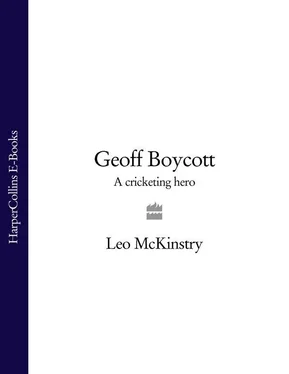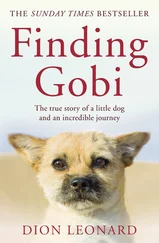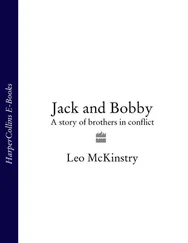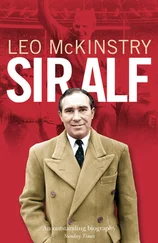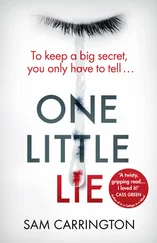Alternatively, others have said it reflects his quick tongue and temper. The name was generally only used by fellow Test cricketers and never had much currency in Yorkshire. Amongst his followers, GLY (Greatest Living Yorkshireman) or Sir Geoffrey are deemed more suitable.
1 A Contradictory Personality
Wednesday 21 July 1999: Geoffrey Boycott attends an early evening reception at a restaurant in central London where he is one of the guests of honour for the launch of the Federation of International Cricketer Associations’ new Hall of Fame. Accompanied by his partner Rachael Swinglehurst, he moves amiably through the gathering, sipping from his glass of champagne and indulging in banter with some of the other guests. Then, in the central ceremony of the evening, he is summoned by the former England batsman Tom Graveney on to a stage to accept his induction into the Hall of Fame. In a polished acceptance speech, mixing modesty, humour and charm in equal measure, he describes Tom Graveney as his boyhood hero and pays fulsome tributes to Ian Botham and Fred Trueman, the two other guests of honour.
Anyone watching this performance who did not know of Boycott’s reputation would have thought he was one of the most gracious and popular figures in the cricket world. There was no inkling of the festering animosity that has long characterized his relationships with Botham and Trueman, no sign of his notorious boorishness, no evidence of his supposed inability to socialize with others.
22 January 1998: Geoffrey Boycott attends a press conference in central London, where he gives his response to the decision of a French court to convict him of assaulting his former girlfriend Margaret Moore. With his position as a media sports star under threat as a result of the £5,100 fine and three-month suspended jail sentence, Boycott decides to go on the offensive. Bristling with indignation, he denounces Ms Moore, accusing her of telling lies about the incident and claiming that she is out to destroy him because he refused to marry her. As journalists begin to question his account, Boycott slips into the belligerent tone so well known by colleagues from broadcasting and cricket. ‘Shut up,’ he tells one reporter, ‘this is my conference, not yours.’ Finally, there is a collective admonition for the press: ‘I am a public figure and the only people I have to answer to are the public, no one else.’
Alec Bedser, who saw the best and worst of Boycott during his 13 years as chairman of England’s Test selectors, once spoke of the Yorkshireman’s ‘enigmatic and contradictory personality’. And these two events, the champagne reception and the stormy press conference, encapsulate the different sides of Boycott’s character. On one hand, there is the brilliantly successful cricketing figure – in his time the greatest run-scorer in the history of Test matches and, after his retirement from the playing arena, a commentator in demand throughout the world – relaxed, affable and generous when basking in the recognition of his achievements. On the other hand, there is the sorry figure with the tangled web of personal relationships and the reputation for selfishness and bad manners, who, in the words of one former England cricketer, ‘has left a trail of social wreckage across the cricket world’.
In a rare moment of self-analysis, Boycott once admitted to being baffled by his own contradictions. During an appearance on the BBC radio programme In the Psychiatrist’s Chair , he told Professor Anthony Clare: ‘We are like diamonds. There are so many facets to the diamond and you cannot tell why it glows on one side and why it doesn’t on the other. Like me, I don’t always understand myself.’ We all, of course, have different, often conflicting, aspects to our personalities. Yet for Geoff Boycott the contrasts are much stronger than for others. He is an intensely private man who has lived his entire adult life in the fiercest public gaze. Indeed, almost two decades after he played his final Test, he is still probably the most famous name in English cricket, though many colleagues who have played and commentated with him say that they hardly know him. He has developed an image of self-confidence bordering on arrogance, yet possesses a streak of almost chronic insecurity.
He craves respect yet, through his behaviour, continually alienates those who might provide it. Even his admirers admit that his extreme moodiness and introspection make him something of a Jekyll and Hyde character. Fellow England star and broadcaster David Gower says, ‘He has the ability to be extremely charming, and an equal ability to be a complete sod.’ Peter Willey, the Test umpire and an England colleague of Boycott’s, told me: ‘Some days he won’t seem interested, then on others he will sit down and talk for hours. He is definitely a split personality – and it’s just a shame that the good side has not come out more.’ Brutally frank in his opinions of others, Boycott can be overly sensitive of any criticism fired in his direction. His career has been littered with the debris of constant feuds and rows. As Derek Hodgson wrote in Wisden on his retirement from cricket: ‘He has a facility for making enemies much faster than he made runs.’ Always a loner, he revels in the adulation of the crowd, whether as a media star in Calcutta or a century-maker in Leeds. He has displayed great inner strength during his rise to the top but is so emotional that, during much of his career, he burst into tears at professional setbacks. Despite often being the most dour of openers, he built up a personal following that no other English cricketer has ever attained. Even in his batting he could be contradictory: in 1965 he played what is still the greatest innings in a Lord’s one-day final and then, less than two years later, he was dropped for slow-scoring against India.
He has accumulated great wealth and adores luxury, always staying in the best hotels and flying first class, yet has a reputation for colossal meanness. ‘He is for ever trying to squeeze another few pence out of whoever he is dealing with,’ fellow commentator Simon Hughes told me. He professes his undying love for Yorkshire cricket, yet helped to tear the club apart in the seventies and eighties. No one was ever better equipped technically and tactically to lead country and county yet, because of his inability to relate to colleagues, he failed dismally in both jobs when given the chance. Though he left school at 16, and has an accent and mannerisms that are a gift to impressionists, he is more articulate and insightful behind the microphone than a host of far better-educated analysts. Despite living with his mother until he was almost forty, he long enjoyed a surprisingly exuberant, even chaotic private life, one that eventually landed him in court. His cosmopolitan outlook, love of travel and phenomenal popularity in the West Indies, India and Pakistan – Asian children have even taken to copying his accent – are in contrast to the narrow horizons of his upbringing in a tightly knit Yorkshire mining community.
It is, perhaps, because Boycott’s own personality is riddled with contradictions that he arouses such violently contrasting opinions in others. For all the antagonism he has incurred during his career, he has a circle of friends and supporters who maintain a passionate loyalty towards him. It is a tribute to his ability to inspire long-term devotion that the key women in his life, Anne Wyatt, Rachael Swinglehurst and Shirley Western, have always stuck by him through his many crises. Other close friends, like Tony Vann of the Yorkshire committee, George Hepworth from Ackworth, and Ted Lester, the former Yorkshire scorer, speak of his personal kindness. And while there are numerous ex-players who loathe him, there are also many cricketers who feel just the opposite, such as Paul Jarvis, the Yorkshire fast bowler, who describes him as ‘a father figure’. Batsmen like Graham Gooch, Bob Barber and Brian Luckhurst have told me how much they enjoyed playing with him. ‘I am convinced that Geoffrey made me a better player, without any doubt,’ says Luckhurst. In the same way in the media today there are some who object to Boycott’s behaviour, such as Henry Blofeld, who recently gave a newspaper interview headlined WHY I WON’T GO IN TO BAT FOR THAT BULLY BOYCOTT. But again, many commentators, such as Jack Bannister, Charles Colvile, David Gower and Tony Greig, have found no problem in working with him.
Читать дальше
